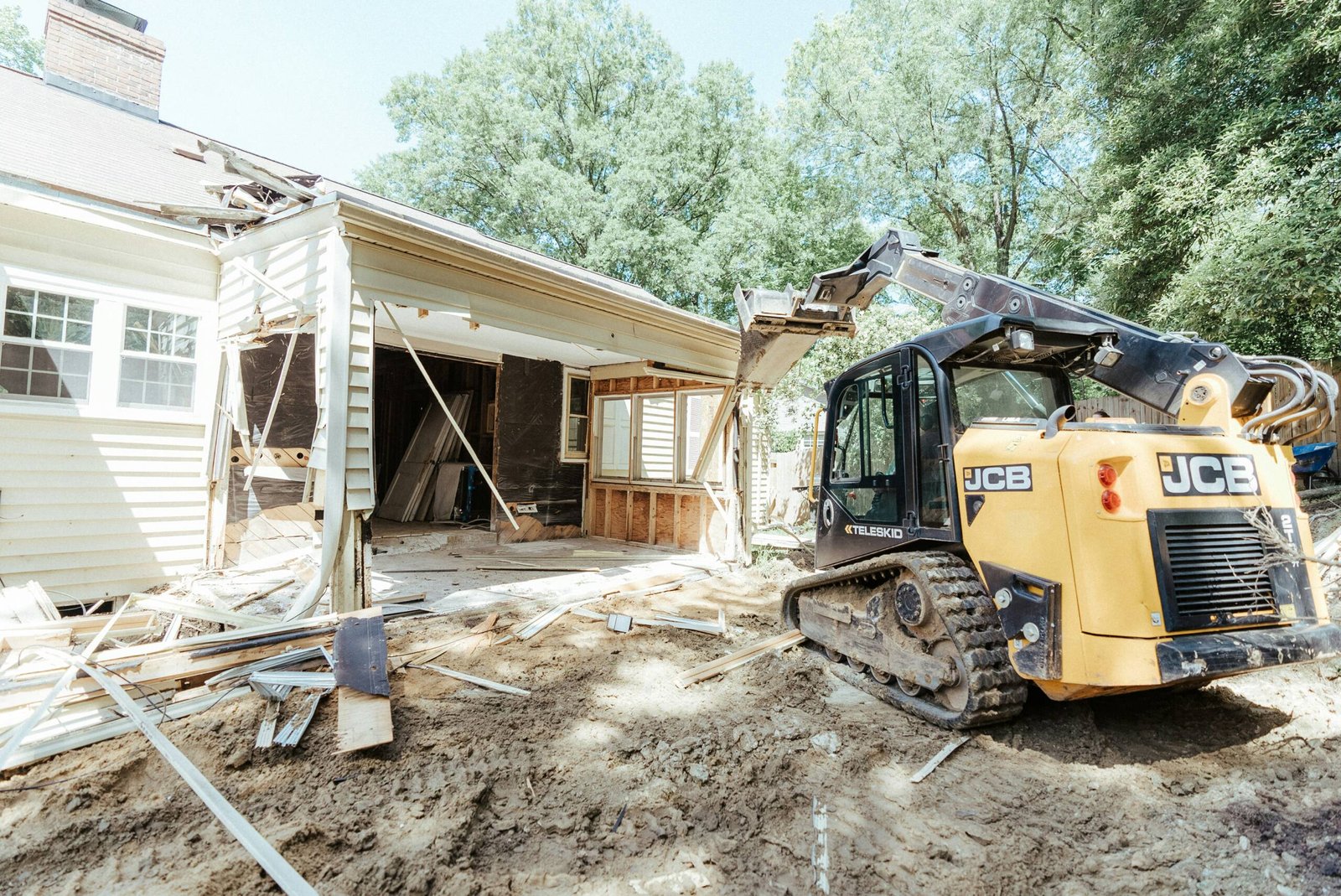
Table of Contents
Understanding the Site Engineer Role
The role of a site engineer is critical in the construction industry, acting as a vital link between the design team and the on-site operations. A site engineer is primarily responsible for managing the technical aspects of a construction project, ensuring that it is executed according to plans, specifications, and industry standards. This position requires both a strong technical acumen and effective interpersonal skills to navigate the complexities of construction management.
As the project commences, site engineers are tasked with interpreting blueprints and technical drawings. Their primary responsibility is to ensure that construction work aligns with these documents, while also adhering to building regulations and safety standards. They are involved in the planning phases, including site assessments and risk evaluations, which help streamline the construction processes and mitigate potential challenges. Site engineers maintain detailed documentation, which aids in monitoring progress and ensuring compliance with contractual obligations.
Beyond their technical expertise, successful site engineers exhibit strong soft skills. Effective communication is essential, as they coordinate with diverse teams including architects, contractors, and other engineering professionals. The ability to foster teamwork can lead to improved collaboration and efficiency on site. Additionally, problem-solving skills play a significant role in this position, as site engineers frequently encounter unforeseen issues that require swift and effective resolutions.
Given the dynamic nature of construction sites, adaptability is another critical trait for a site engineer. They must remain flexible in overcoming challenges and adapting to change while ensuring that safety protocols are maintained. In conclusion, possessing a balance of technical know-how and interpersonal capabilities is indispensable for anyone aspiring to excel as a site engineer in a competitive landscape.
Researching the Job Market
Entering the site engineering field requires an understanding of the current job market dynamics, which can be achieved through comprehensive research. Start by utilizing reputable job boards such as Indeed, Glassdoor, and LinkedIn, where opportunities are frequently posted. These platforms allow you to filter your searches based on location, experience level, and specific skills relevant to a site engineer role. Setting up job alerts on these sites can ensure you are notified when new positions become available, giving you a competitive edge.
Company websites are another vital resource for job vacancies. Many organizations prefer to list available positions on their careers page before posting them elsewhere. Consequently, identifying companies that align with your values and long-term career objectives is essential. Look for firms specializing in sectors relevant to your interests, such as construction, infrastructure, or environmental engineering. Regular visits to these sites can keep you informed about upcoming job openings and the company culture.
Networking is equally important in the site engineering profession. Attend industry-related events, conferences, and seminars where you can connect with professionals already working in the field. Engaging in conversations with experienced site engineers can provide valuable insights into job opportunities not yet posted publicly and help you build a professional network that may assist in your job search. Furthermore, joining professional organizations related to engineering, such as the Institution of Civil Engineers (ICE) or the American Society of Civil Engineers (ASCE), can provide access to job boards exclusively available to members, webinars, and additional resources aimed at job seekers.
In addition to exploring job listings, consider conducting informational interviews with individuals currently in site engineer positions. This approach allows you to gain firsthand knowledge about the industry and the skills necessary to succeed while also potentially discovering hidden job opportunities within their organizations. Through diligent research and leveraging available resources, you can position yourself effectively in the competitive site engineering job market.
Preparing Your CV and Cover Letter
When applying for a site engineer position, crafting a compelling CV and cover letter is essential in making a strong first impression on potential employers. The process begins with a thorough understanding of the site engineer role and its specific requirements. Tailoring these documents to align with the job description is critical, as this demonstrates your genuine interest in the position and showcases your relevant qualifications effectively.
Your CV should begin with a clear and professional format. Use a readable font and adequate spacing to make your document easy to navigate. Start with your contact information, followed by an objective statement that outlines your career ambitions and explains why you are an ideal candidate for the site engineer role. Highlight your educational background, detailing your degree in civil engineering or a related discipline, emphasizing any relevant certifications or licenses that bolster your qualifications.
Next, focus on your professional experience. Include specific projects you have worked on and your responsibilities on those initiatives. Emphasize your contributions to ensuring on-time and on-budget project delivery, which is a critical aspect of a site engineer’s role. Utilize quantifiable achievements, such as percentage reductions in costs or time savings achieved through innovative solutions. This not only highlights your technical proficiency but also your problem-solving abilities and attention to detail.
In your cover letter, provide a narrative that complements your CV, detailing your motivations for applying and how your skills align with the needs of the employer. Address the hiring manager by name, if possible, and express enthusiasm about the site engineer position. Illustrate your soft skills—such as teamwork, communication, and leadership—alongside your technical abilities to demonstrate that you are well-rounded and prepared for the challenges of the role.
By investing time into preparing a tailored CV and cover letter, you significantly enhance your chances of standing out in the competitive field of civil engineering, securing the site engineer role you aspire to.
Networking for Opportunities
Networking is an essential strategy for aspiring site engineers looking to enhance their career prospects. Establishing meaningful connections within the construction and engineering sectors can significantly increase one’s chances of discovering job opportunities. One effective method for networking is leveraging social media platforms, particularly LinkedIn. This professional network allows individuals to showcase their skills, connect with industry professionals, and stay updated on job openings and industry trends.
Creating a robust LinkedIn profile is crucial; potential site engineers should ensure their profiles are complete, including a professional photo, a compelling summary, and detailed descriptions of their experiences and qualifications. Actively engaging with relevant content, such as liking, sharing, or commenting on posts from industry leaders, can further enhance visibility and credibility within the field. Additionally, joining LinkedIn groups focused on construction and engineering can foster connections with other professionals and open doors to potential job openings.
Attending industry conferences and networking events is another excellent opportunity for connecting with other site engineers and hiring managers. These gatherings often include sessions that cover the latest trends and challenges within the industry, allowing participants to not only gain knowledge but also establish valuable relationships. Bringing business cards and preparing an elevator pitch can help leave a lasting impression on potential employers or mentors during these events.
Participating in relevant online forums and discussion groups can also be beneficial for aspiring site engineers. Platforms like Reddit, specialized engineering forums, or even Facebook groups often provide members with insights into job vacancies, industry discussions, and insider advice. By engaging in these communities, individuals can not only learn but also position themselves as knowledgeable contributors, thereby expanding their network further.


Acing the Job Interview
Interviews can be a pivotal stage in securing a site engineer position, and thorough preparation can significantly enhance your chances of success. Understanding common interview questions is essential. Questions often include inquiries about technical skills, team collaboration, and project management experiences. For instance, interviewers may ask you to describe a challenging project and how you navigated those difficulties. This is an opportunity to emphasize both your technical knowledge and problem-solving competencies.
When discussing your project experience, it is advantageous to incorporate specific examples that highlight your role and contributions as a site engineer. Be prepared to detail the processes you utilized, the tools you employed, and the outcomes achieved. Quantifying your achievements can create a more compelling case—for instance, mentioning how a particular project was completed ahead of schedule or under budget demonstrates effectiveness in your role.
In addition to technical skills, interpersonal abilities are also key in an interview for a site engineer. The ability to communicate effectively with various stakeholders—including contractors, clients, and team members—is of vital importance in the field. During the interview, emphasize experiences where teamwork or clear communication helped resolve conflicts or advance project goals. Potential employers look for candidates who not only possess technical expertise but also can foster collaboration and drive a cohesive work environment.
Practice is also an effective strategy for reducing anxiety and presenting yourself confidently. Mock interviews can help you become familiar with the flow of questions and allow you to refine your responses. Ultimately, your goal is to demonstrate not only your technical proficiency as a site engineer but also your capacity to integrate seamlessly into a team, leading to successful project outcomes.
Gaining Relevant Experience
Acquiring relevant experience is a crucial step for individuals looking to establish a career as a site engineer. Engaging in internships, volunteer opportunities, and entry-level positions can significantly enhance one’s practical skills and industry knowledge, making candidates more attractive to potential employers. These opportunities provide hands-on experience that textbooks alone cannot offer.
Internships are often the most sought-after avenue for aspiring site engineers. Many construction firms and engineering companies offer internship programs that allow candidates to work alongside experienced professionals on real projects. In addition to acquiring technical skills, interns can develop a better understanding of job site dynamics, project management, and safety regulations vital for a site engineer role. Furthermore, these positions can frequently serve as a launching point for full-time employment, as many organizations prefer to hire individuals who have previously interned with them.
Volunteering can also be an effective way to gain relevant experience. Non-profit organizations often require assistance on projects related to infrastructure development, which can benefit from the expertise of budding site engineers. Participating in such initiatives not only showcases a candidate’s commitment to community service but also provides practical exposure to the site engineering field.
Entry-level jobs are another pathway to valuable experience. Positions such as assistant project managers, site supervisors, or field engineers can furnish individuals with insights into the day-to-day operations on-site. While these roles may not be as glamorous as other engineering positions, they are instrumental for skill enhancement and professional growth.
In addition to these practical experiences, candidates should keep track of their accomplishments and learnings from each role. This documentation can be useful when applying for site engineer positions, as it enables candidates to articulate their experiences effectively in resumes and interviews, thereby improving their chances of securing a desired role in the industry.
Understanding Industry Certifications
In today’s competitive job market, obtaining relevant certifications can significantly enhance a candidate’s profile for a site engineer role. Various certifications validate an individual’s expertise and knowledge in specific areas, thereby increasing employability and career advancement opportunities. Industry-recognized certifications not only provide a competitive edge but also indicate dedication to professional development.
One of the most respected certifications for site engineers is the Certified Construction Manager (CCM) credential, offered by the Construction Management Association of America (CMAA). This certification demonstrates proficiency in construction management skills, making it a valuable asset for aspiring site engineers. To obtain the CCM, candidates must meet certain educational prerequisites and demonstrate relevant experience in the construction management field. Successfully passing an examination further validates their qualifications.
Another important certification to consider is the Project Management Professional (PMP), administered by the Project Management Institute (PMI). This credential is highly sought after across various industries, including construction, and signifies that a site engineer possesses advanced project management skills. To earn the PMP certification, candidates need to fulfill specific educational and experience requirements, followed by a comprehensive examination.
Acquiring these certifications not only strengthens a site engineer’s knowledge base but also reflects commitment to their profession, which can be appealing to employers. Additionally, these certifications often require continuing education, ensuring that certified professionals remain informed about the latest industry trends and technologies.
In conclusion, holding relevant certifications can significantly bolster a site engineer’s qualifications. By investing time and effort into obtaining recognized credentials like the CCM or PMP, individuals can enhance their career prospects in the construction industry. Such certifications lead to increased recognition and may contribute to better job security and higher earning potential.
Utilizing Recruitment Agencies
Recruitment agencies can be instrumental in streamlining the job search process for aspiring site engineers. These agencies specialize in matching candidates with job opportunities that align with their skills and experience, thereby facilitating a more efficient application process. The value of working with a recruitment agency lies in their industry knowledge and connections, which can be particularly beneficial for niche positions like site engineer roles.
When selecting a recruitment agency, it is crucial to choose one that specializes in the construction and engineering sectors. Look for agencies with a proven track record of successfully placing site engineers in reputable firms. Investigating their client list and reading reviews can provide insight into their effectiveness and the likelihood of finding suitable opportunities. It’s also advisable to assess whether the agency has established relationships with key employers in the industry, as this can significantly improve your chances of being considered for a position.
The process of working with a recruitment agency typically begins with an initial consultation. During this meeting, candidates can discuss their professional background, career aspirations, and specific site engineer roles they are interested in. The agency will then utilize this information to tailor their search for suitable job openings. Additionally, they often provide support with resume writing and interview preparation, which can bolster a candidate’s chances of success in a competitive job market.
One of the standout advantages of using recruitment agencies is their ability to connect candidates with potential employers who may not be advertising vacancies publicly. This access to the hidden job market enables site engineers to discover opportunities that could otherwise be missed. Furthermore, recruitment agencies often have insights into company cultures and hiring practices, equipping candidates with valuable information that can enhance their interviews and job applications.
Following Up After Applications
Following up after job applications is a critical step in the hiring process, especially for a site engineer role where prompt communication and organizational skills are highly valued. It not only demonstrates your continued interest in the position but also allows you to stand out among other candidates. The process of following up can be methodical and strategic, ensuring that you leave a positive impression on potential employers.
Once you have submitted your application, it is advisable to wait for about one to two weeks before reaching out to the prospective employer. This timeframe provides sufficient time for the hiring team to review applications and make initial decisions. When crafting your follow-up communication, be sure to address the hiring manager or recruiter by name, if known. Clearly state your name and the position for which you applied, reinforcing your interest in the site engineer position. A concise, polite email can serve as a gentle reminder, showcasing your professionalism.
In your email, it is best to express appreciation for the opportunity to apply, and inquire about the status of your application. Additionally, offer to provide any further information that might assist in the decision-making process. This shows your initiative and willingness to engage further with the team. Remember to keep your email brief and to the point, while still conveying enthusiasm for the role.
Following up after an interview is equally important. Sending a thank-you email within 24 hours not only reinforces your interest but also highlights your excellent communication skills—essential attributes for any site engineer. In this message, thank the interviewer for their time, mention specific topics discussed during the meeting, and reiterate your enthusiasm for the role. This small gesture can leave a lasting impact, potentially setting you apart from other candidates.


